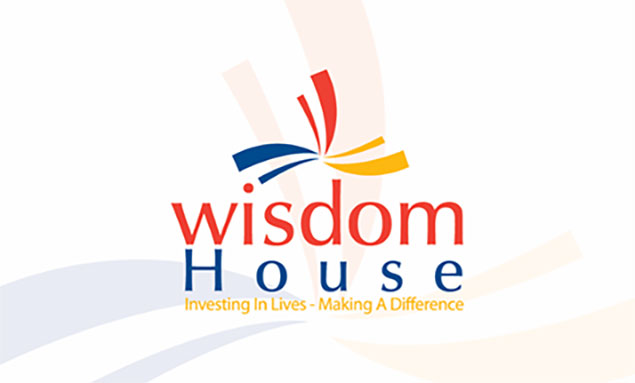Wisdom House Vulnerable Adult Policy
Wisdom Community CenterWisdom House Vulnerable Adult Policy
Scope
The majority of students are aged 18 and over and some may be vulnerable adults.
Wisdom House works with students in further education and offers a range of multi-dimensional activities and qualifications.
The Policy
Wisdom House is committed to keeping all adults taking part in its activities safe from harm. Where ‘vulnerable adults’ are accessing our programmes then additional care will be taken to ensure that they are recognised and kept safe.
Safeguarding is about protecting certain people who may be in vulnerable circumstances. These people may be at risk of abuse or neglect due to the actions (or lack of action) of another person. In these cases, Wisdom House has to work together with public services to identify people at risk, and put steps in place to help prevent abuse or neglect.
- We do this by: Valuing, listening to and respecting vulnerable adults.
- Following safer recruitment procedures for all staff, self-employed tutors working with vulnerable adults.
- Ensuring everyone working with vulnerable adults receives this policy and ongoing support and supervision.
- Ensuring that safeguarding and promoting the welfare of vulnerable adults is embedded in our contract through the training and activities we provide for staff.
- Publishing our Vulnerable Adults Policy online and circulating it to everyone to whom it applies along with our Safeguarding Policy.
- Ensuring designated safeguarding persons stay up to date with current best safeguarding practice and advice from relevant external agencies.
- Wisdom House will ensure that staff who will work alone with vulnerable adults will have a DBS Check.
- If Wisdom House dismisses a member of staff because they have harmed a vulnerable adult, the organisation will inform the relevant Safeguarding Authority and if necessary the police.
Who are vulnerable adults?
- A person who is or may be in need of community care services by reason of disability, age or illness; and is unable to take care of themselves without help and may therefore be unable to protect themselves from harm or exploitation.
- An adult is considered ‘vulnerable’ if they receive a health, personal or social care service from a professional. Personal services would include, for example, help with financial matters, feeding, washing or dressing.
- Wisdom House encounters a relatively small number of adults on their public programmes and academic courses who fall into the ‘vulnerable adult’ category.
- For issues relative to the support and welfare of students and tutors, please refer to the separate Safeguarding Policy.
- Examples of vulnerable adults:
- An elderly person who requires help with their physical care
- A person suffering from dementia
- A person with a disability that requires the help of a carer
- A person with a learning disability that makes independent living difficult
Defining Abuse
- Abuse and neglect take many forms. Abuse can lead to a violation of someone’s human and civil rights by another person or persons. Abuse can be physical, financial, verbal or psychological. It can be the result of an act or a failure to act. Abuse can occur in any relationship and may result in significant harm or exploitation.
- Categories of abuse include the following:
- Physical abuse: any type of violence, restraint or misuse of medication.
- Domestic violence: psychological, physical, financial or emotional abuse including ‘honour’ based violence
- Sexual abuse: sexual harassment, rape, indecent exposure or exposure to pornography, pressure to consent a sexual act or to witness a sexual act
- Psychological abuse: emotional abuse, threats of harm or abandonment, humiliation, harassment, verbal abuse or cyber bullying
- Neglect: acts of omission in terms of physical, emotional or medical care including self neglect with regards to personal hygiene, health or surroundings.
- Financial abuse: theft, fraud, scamming, coercion in relation to financial arrangements Discrimination: harassment, slurs or bad treatment because of race, gender, age, identity, religion, sexual orientation or religion.
- Discrimination: harassment, slurs or bad treatment because of race, gender, age, identity, religion, sexual orientation or religion
- What to do in the event of suspected abuse?
- Any allegation or suspicion of abuse must be reported immediately to the designated vulnerable adults persons listed below. Wisdom House will then take appropriate steps in place to help prevent abuse or neglect.
- If Wisdom House, or anyone who works for the organisation, suspects that a crime against a vulnerable adult has taken place, we will refer the matter to the police – as we would for any other persons under our employ or in our programmes.
- If an incident of abuse is thought to be a criminal offence, Wisdom House will refer it to the police.
- Examples of actions that may be criminal include: physical assault, psychological assault, sexual assault and rape, theft, fraud of other forms of financial exploitation, and certain forms of discrimination on the grounds of race or gender.
- Because deciding whether a case should be referred to the police is not always clear, decisions to involve the police will be taken by the designated vulnerable adult persons listed below on behalf of Wisdom House.
Witnessing Abuse
Take the following steps if you witness abuse of to report an abuse:
- Make sure that the person is safe
- Listen calmly to the person
- Talk reassuringly to the person
- Explain that you must inform your senior staff
- Tell them that with their consent they can get help and support
- Make an accurate report using the persons own words
- Describe the circumstances with which it occurred
- Keep person informed of all follow-on proceedings
Get In Touch
Wisdom Community Centre
Location: 168 High Rd, Chadwell Heath, Dagenham, Romford RM6 6LU, United Kingdom
Telephone: 02085973990
Mobile: 07883687099
Email: admin@wcc.co.com
